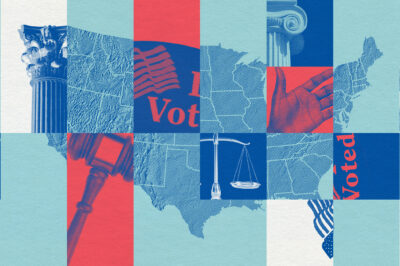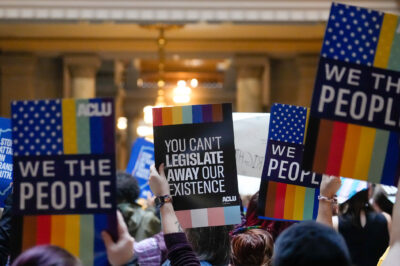On March 2, 2011, the Supreme Court established in Snyder v. Phelps that peaceful protests addressing public concern, on public streets near military funerals, such as those held by Westboro Baptist Church (WBC), are constitutionally protected speech under the First Amendment. In the two months that have passed since that ruling, funeral protests are again being attacked in both chambers of Congress.
“The Safe Haven for Heroes Act of 2011” (H.R. 961) and “The Sanctity of Eternal Rest for Veterans” (SERVE) Act (S. 815) seek to protect the right of families to mourn in private. Unfortunately, both H.R. 961 and S. 815 seek to achieve that admirable goal by restricting the rights of protestors through the expansion of existing limitations on the time and place of protests in the vicinity of the funerals of fallen servicemembers.
The existing federal law set under the “Respect for America’s Fallen Heroes Act” already limits how protests can be conducted at federal cemeteries. The 2006 statute makes it illegal to protest within 300 feet of the boundary of the funeral (and funeral procession) and establishes a quiet time of one hour before and after the service. Penalties for violating the act are up to $100,000 in fines and up to one year imprisonment.
The SERVE Act and the Safe Haven for Heroes bill both call for increasing the distance at which protesters must stand and the quiet time necessary to protect the privacy of the funerals. The SERVE Act is the more moderate of the two, increasing the buffer zone from 300 to 500 feet around the funeral and access routes and increasing the hour quiet time to two hours before and after the service. The penalty for violating the SERVE Act could be up to two years in prison, heavy fines or both. The Safe Haven for Heroes bill offers an even greater expansion of current protest limitations. Under H.R. 961, the buffer zone would increase from 300 feet to 2,500 feet and the quiet time to five hours before and after the funeral.
It is not surprising that both the House and Senate bills have gathered bipartisan support. The obvious and unnamed target of these bills is the WBC, which has faced lawsuits over its protests. Though the WBC won its case on First Amendment grounds, it remains largely unpopular due to its immensely controversial belief that God hates the United States’ tolerance of homosexuality and punishes the country with dead soldiers. The WBC’s hate speech is embraced by a very small minority of America — a minority that is often dwarfed at its protests by swarms of counterprotestors. However, WBC believes in exercising its fundamental right to fulfill its religious duty by sharing its message with America.
It is the unpopular minority speech that is often the most vulnerable to censorship. Increasing the distance of protests from 300 feet to half a mile will not assuage the sense of loss felt by grieving families, but will do an injustice to the memory of the deceased servicemembers by limiting the civil liberties they enlisted to support and died defending. The First Amendment should not be limited to hinder WBC, but should be the rallying point for even more free speech in repudiation of WBC’s hateful messages. The ACLU has profound sympathy for fallen servicemembers and their families, but does not approve of Congress using them as a means to limit free speech under the First Amendment.
Learn more about free speech: Subscribe to our newsletter, follow us on Twitter, and like us on Facebook.



